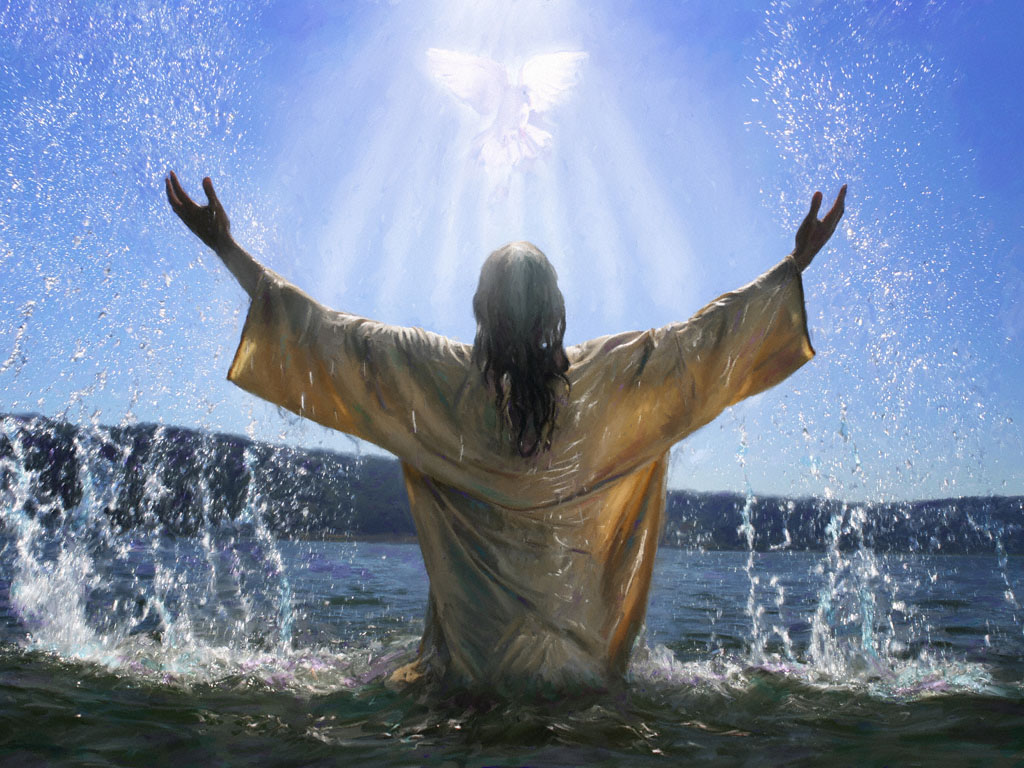
Walking in the Spirit is simply just living in the spirit. It is living your life in the continual presence of the Spirit of God. The Holy Spirit was sent from God to be our comforter and our guide to all truth. He was sent after Jesus was glorified. We must abide in Christ. He is the vine and we are the branches. We must depend on His grace and strength throughout our life time.
“And the Lord God formed Man of the dust of the ground, and breathed into his nostrils the breath of life; and man became a living soul” (Genesis 2:7). As soon as the breath of life, which became man’s spirit, came into contact with man’s body, the soul was produced. Hence the soul is the combination of man’s body and spirit. The Scriptures therefore call man “a living soul.” The breath of life became man’s spirit; the principle of life within him.
The Lord Jesus tells us “it is the spirit that gives life” (John 6:63). This breath of life comes from the Lord of Creation. We must not confuse man’s spirit with God’s Holy Spirit. The latter differs from our human spirit. Romans 8:16 demonstrates their difference by declaring that “it is the Spirit himself bearing witness with our spirit that we are children of God.” We must recognize, though, that this spirit is not God’s Own life, for “the breath of the Almighty gives me life” (Job 33:4). It is not the entrance of the uncreated life of God into man, neither is it that life of God which we receive at regeneration. What we receive at new birth is God’s Own life as typified by the tree of life. But the human spirit, though permanently existing, is void of “eternal life.”
Man created as a living Soul

Man was designated a living soul, for it was there that the spirit and body met and through which his individuality was known. God treated man’s soul as something unique. As the angels were created as spirits, so man was created predominantly as a living soul. Man was designated a living soul, for it was there that the spirit and body met and through which his individuality was known. Man’s soul represents him and expresses his individuality. We must remember that whereas the soul is the meeting-point of the elements of our being in this present life, the spirit will be the ruling power in our resurrection state.
For the Bible tells us that “it is sown a physical body, it is raised a spiritual body” (1 Corinthians 15:44). Yet here is a vital point. We who have been joined to the resurrected Lord can even now have our spirit rule over the whole being. We are not united to the first Adam who was made a living soul but to the last Adam Who is a live-giving spirit.
The fall of Mankind

Death entered the world through the fall of man. Reference here is to spiritual death which separates man from God. Death always comes through sin. Adam sinned and introduced sin into the world (Romans 5:12). Death has permeated the spirit, soul and body of all men; there is no part of a human being into which it has not found its way. It is therefore imperative that man receive God’s life. The Lord Jesus came and took human nature upon himself in order that He might be judged instead of humanity. He died a substitute, suffered all penalty of sin, and offered his life a ransom for many.
The Son of God alone can restore us to God, for He shed His blood to cleanse our sins and give us a new life. Immediately the sinner believes in the Lord Jesus he is born anew. God grants him His uncreated life that the sinner’s spirit may be made alive. God aims first to renew man’s darkened spirit by imparting life to it, because it is this spirit which God originally designed to receive His life and to commune with Him. When God’s life (which can equally be called His Spirit) enters our human spirit, the latter is quickened out of its coma. What we are given in Adam is a spirit made dead. What we receive in Christ at regeneration is both the dead spirit quickened and the new spirit of God’s life (Ezekiel 36:26): the latter, something Adam never had.
Our new life is “in Christ”
To enjoy our new life “in Christ” requires walking in the Spirit. If I do not live in the Spirit, then my life may be quite a contradiction of the fact that I am in Christ. For what is true of me in him is not expressed in me. It is that I am holding the truth merely objectively. Whereas what is true objectively must be made true subjectively. And that is brought about as I live in the Spirit. Though in fact I am in Christ, yet if I live in the flesh – that is, in my own strength and under my own direction – then in experience I find my dismay that it is what is in Adam that manifests itself in me. If I would know in experience all that is in Christ, then I must learn to live in the Spirit.
Living in the Spirit means that I trust the Holy Spirit to do in me what I cannot do myself. This life is completely different from the life I would naturally live of myself. Each time I am faced with a new demand from the Lord, I look to him to do in me what he requires of me. It is not a case of trying but of trusting; not of struggling but of resting in him. The divine way of victory does not therefore permit of our doing anything at all – anything, that is to say, outside of Christ. Our natural inclinations carry us in the wrong direction. “The flesh lusteth against the Spirit, and the Spirit against the flesh” (Galatians 5:17). This tells us where the real battle takes place. The fight with the flesh is not ours but the Holy Spirit’s.
Walk by Faith

If we are walking in the Spirit we walk by faith in the risen Christ. We can truly “stand aside” while the Spirit gains new victories over the flesh every day. Our victory lies in hiding in Christ, and in counting in simple trust upon his Holy Spirit within us to overcome our fleshly lusts with his own new desires. The Cross has been given to procure salvation for us; the Spirit has been given to produce salvation in us. Christ risen and ascended is the basis of our salvation; Christ in our hearts by the Spirit is its power.
We think of the Christian life as a “changed life” but it is not that. What God offers us is an “exchanged life,” a “substituted life,” and Christ is our Substitute within. “I live; and yet no longer I, but Christ liveth in me.” This life is not something which we ourselves have to produce. It is Christ’s own life reproduced in us. Regeneration means that the life of Christ is planted in us by the Holy Spirit at our new birth. “Regeneration” means that the life of Christ is planted in us by the Holy Spirit at our new birth.
“Reproduction” goes further: it means that the new life grows and becomes manifest progressively in us, until the very likeness of Christ begins to be reproduced in our lives. That is what Paul means when he speaks of his travail for the Galatians “until Christ be formed in you.”
Law of the Spirit of Life
Romans 6:23 states that “the free gift of God is eternal life in Christ Jesus our Lord.” In Romans 8:2 we read that “the law of the Spirit of life in Christ Jesus hath made me free from the law of sin and death” has come to our aid. So Romans 8:2 speaks not of a new gift but of the life already referred to in Romans 6:23. In other words, it is a new revelation of what we already have. A new unveiling of what he has already given. It is a new discovery of a work already done in Christ, for the words “made me free” are in the past tense.
If I really see this and put my faith in him, there is no absolute necessity for the experience of Romans 7 – unhappy struggle and failure or the fruitless display of will-power – to be repeated in me. If we will let go of our own wills and trust him, we shall not experience failure and defeat. For God has put another law into operation – the law of the Spirit of life. This law is strong enough to deliver us from the law of sin and death. God has given us not only life but a law of life.
Walking in the Spirit

“For what the law could not do, in that it was weak through the flesh, God, sending his own Son in the likeness of sinful flesh and as an offering for sin, condemned sin in the flesh. That the ordinance of the law might be fulfilled in us, who walk not after the flesh, but the Spirit.” Every careful reader of these two verses will see that there are two thing presented here. First, they are what the Lord Jesus has done for us, and second, what the Holy Spirit will do in us. The flesh is “weak”: consequently the ordinance of the law cannot be fulfilled in us “after the flesh.”
Now, because of our inability, God took two steps. In the first place he intervened to deal with the heart of our problem. He sent his Son in the flesh, who died for sin and in doing so “condemned sin in the flesh.” That is to say, he took to death representatively all that belonged to the old creation in us. Whether we speak of it as “our old man,” “the flesh,” or the carnal “I.” Thus God struck at the very root of our trouble by removing the fundamental ground of our weakness. This was the first step.
Not a Work, but a Walk
But still “the ordinance of the law” remained to be fulfilled “in us.” How could this be done? It required god’s further provision of the indwelling Holy Spirit. It is he who is sent to take care of the inward side of this thing, and he is able to do so, we are told, as we “walk…after the Spirit” (Romans 8:4). What does it mean to walk after the Spirit? It means two things. First, it is not a work, it is a walk. Praise God, the burdensome and fruitless effort I involved myself in when I sought “in the flesh” to please God gives place to a quiet and restful dependence of “his working, which worketh in me mightily” (Colossians 1:29). That is why Paul contrasts the “works” of the flesh with the “fruit” of the Spirit (Galatians 5:19, 22).
Than second, to “walk after” implies subjection. Walking after the flesh means that I yield to the dictates of the flesh. Walking after the Spirit is to be subject to the Spirit. There is one thing that the man who walks after the Spirit cannot do, and that is to be independent of Him. I must be subject to the Holy Spirit. The initiative of my life must be with him. Only as I yield myself to obey him shall I find the “law of the Spirit of Life” in full operation and the “ordinance of the law” (all that I have been trying to do to please God) being fulfilled – no longer by me but in me. “As many as are led by the Spirit of God, these are sons of God” (Romans 8:14).

